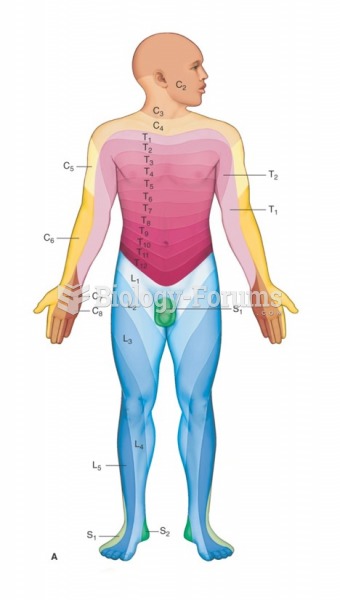|
|
|
Addicts to opiates often avoid treatment because they are afraid of withdrawal. Though unpleasant, with proper management, withdrawal is rarely fatal and passes relatively quickly.
Bacteria have flourished on the earth for over three billion years. They were the first life forms on the planet.
The average human gut is home to perhaps 500 to 1,000 different species of bacteria.
Hip fractures are the most serious consequences of osteoporosis. The incidence of hip fractures increases with each decade among patients in their 60s to patients in their 90s for both women and men of all populations. Men and women older than 80 years of age show the highest incidence of hip fractures.
There are more sensory neurons in the tongue than in any other part of the body.







